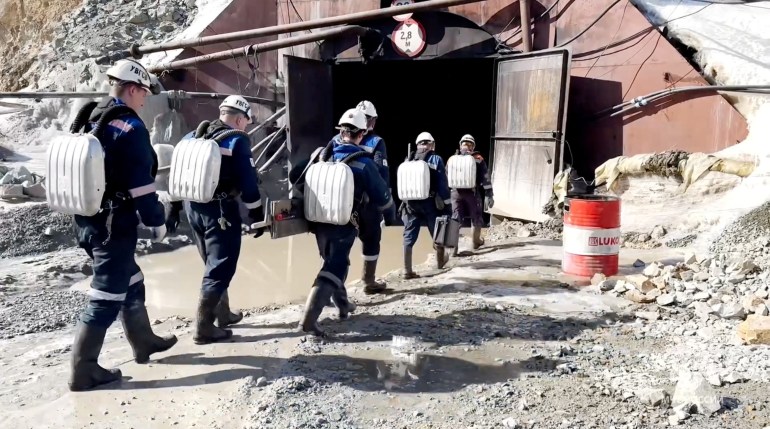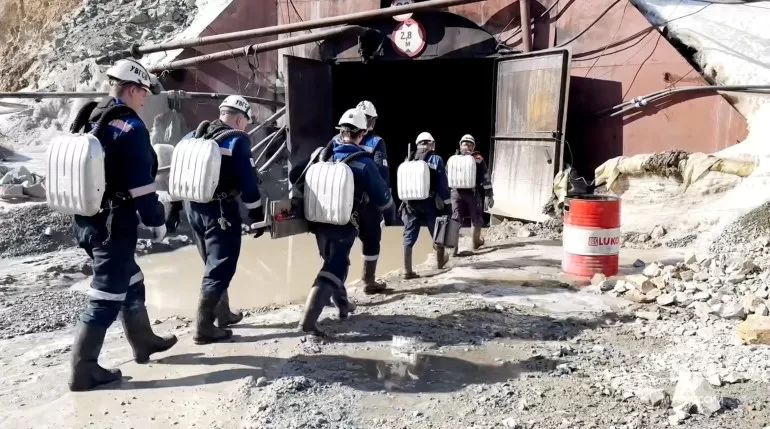A landslide in Russia’s Amur region pinned the miners more than 120 metres underground.
The operator of the Pioneer gold mine announced the decision on Monday, two weeks after a landslide at the facility in the Amur region near the Chinese border buried the miners more than 120 metres (about 400 feet) underground.
The statement by operator Pokrovsky Mine said search operations showed caverns, where the miners could have been sheltering, were flooded, raising fears the 13 are dead.
It added that the rescue operation had become too dangerous to continue.
“On 1 April, a decision was made to terminate the rescue operation at the Pioneer mine,” the statement said.
“The results of drilling showed the areas where the miners could be are filled with rock mass and water. The lives of rescuers and mine workers involved in the operation are at risk of death,” due to the possibility of another collapse, it added.

Kremlin spokesman Dmitry Peskov said the termination of the rescue mission was “not good news”.
“All the measures that could have been taken in connection with the situation that arose were taken. But the situation is what it is,” he told reporters.
The regional governor said emergency workers had tried to save the miners “at great risk to their lives” and that the families of the miners would be given financial support.
The gold mine is one of the largest in the world and one of the most productive in Russia. It is owned by sanctions-hit Russian copper and gold producer Ural Mining And Metallurgical Company (UMMC).
Officials in Amur have opened an investigation into a suspected breach of safety rules. The managing director of the mine was arrested last week, the regional branch of Russia’s Investigative Committee, which investigates serious offences, said.
Accidents at mines are relatively common in Russia, where lax safety standards and weak enforcement have been blamed for multiple tragedies.
In 2021, an accident at a coal mine in Siberia killed 40 miners.
